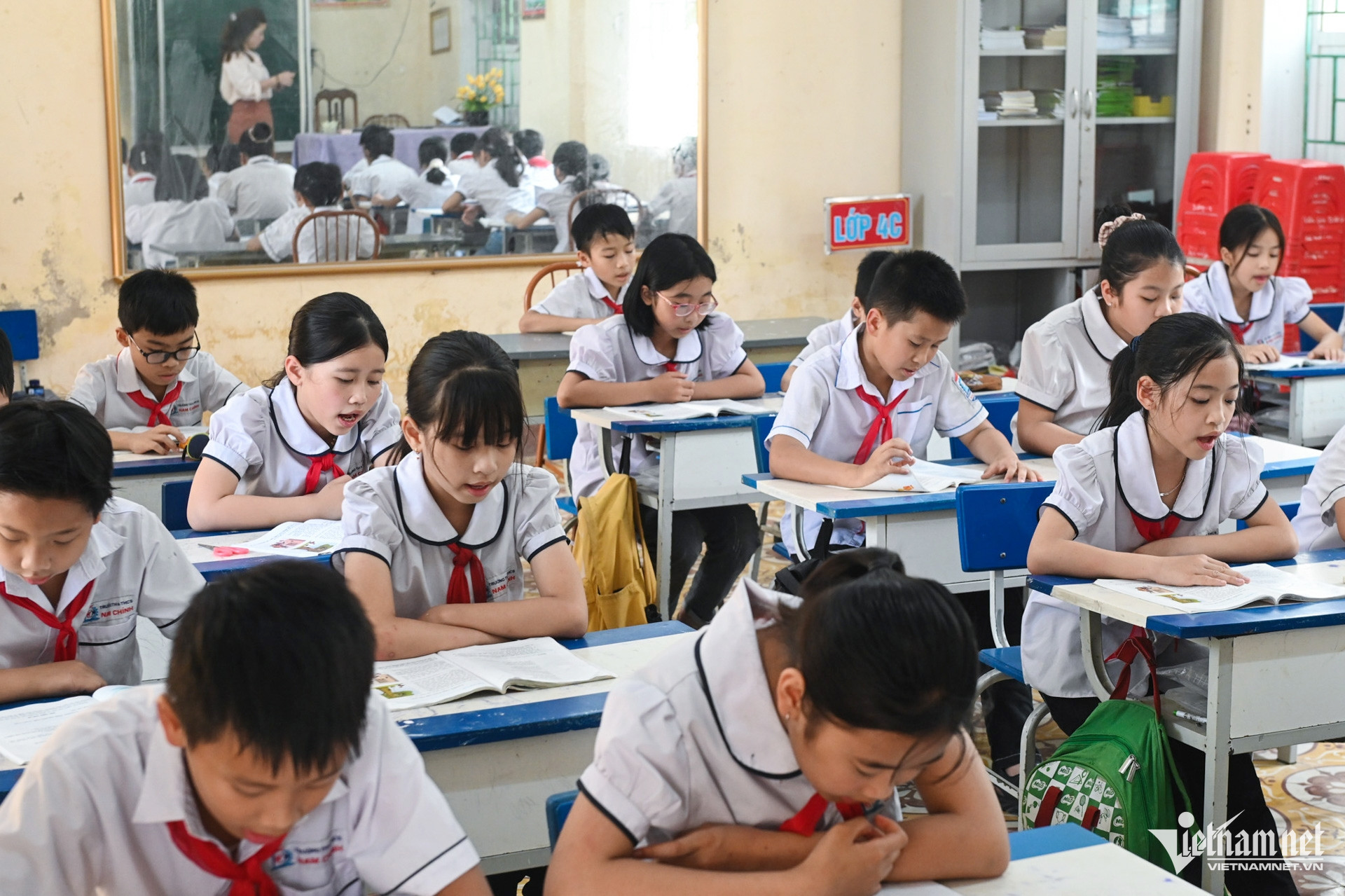This policy, aimed at improving educational outcomes, emphasizes the need for sufficient teaching resources and structured learning environments.

This information was outlined in a directive sent by the MOET to provincial Departments of Education and Training regarding elementary education tasks for the 2024-2025 academic year.
Accordingly, the MOET requires schools to ensure student-to-class ratios adhere to the regulations set forth in the Elementary School Charter, maintaining a maximum of 35 students per class. Schools must also provide the minimum required teaching equipment. Each school should maintain a ratio of 1.5 teachers per class and a teacher structure sufficient to teach all subjects and educational activities for two sessions per day.
For schools operating two sessions per day, no more than seven lessons should be scheduled daily, with each lesson lasting 35 minutes. Schools should teach a minimum of nine sessions per week and have the flexibility to organize and allocate time for elective subjects.
For schools offering boarding services, the MOET requires schools to coordinate with parents on a voluntary basis. Meals provided must ensure hygiene, food safety, and adequate nutrition and health for students.
For extracurricular activities, based on student needs and interests, schools may organize clubs or use school facilities such as libraries, playgrounds, sports fields, and multifunctional halls. Such activities require approval from relevant authorities.
When teaching elective foreign language 1 (English, French, Chinese, Russian, Japanese, Korean, German) for grades 1 and 2, schools must ensure continuity. Teaching time should be appropriate to avoid overburdening students.
For grades 3, 4, and 5, foreign language 1 is compulsory. Schools should use elementary-level English learning materials online and on computers to ensure quality and relevance to local conditions.
In terms of student assessment and evaluation, the methods and formats for evaluating subjects and educational activities must ensure honesty, objectivity, fairness, and accurate assessment of students' learning and practice. Awards should be substantive, compliant with regulations, and avoid indiscriminate recognition that causes frustration among parents.
The MOET encourages localities with the necessary conditions to implement integrated education programs and apply advanced, modern educational models to meet diverse learner needs.
However, provincial Departments of Education and Training should review the conditions required to implement educational linkages and integrated programs as prescribed. This is to avoid situations where educational institutions partner with foreign organizations that do not meet the necessary conditions.
Additionally, provinces and cities must widely implement STEM education in all educational institutions. According to the MOET, this educational approach equips students with scientific knowledge closely linked to practical applications. Students engage in active, proactive learning and apply newly acquired knowledge to solve problems.
Hoang Thanh